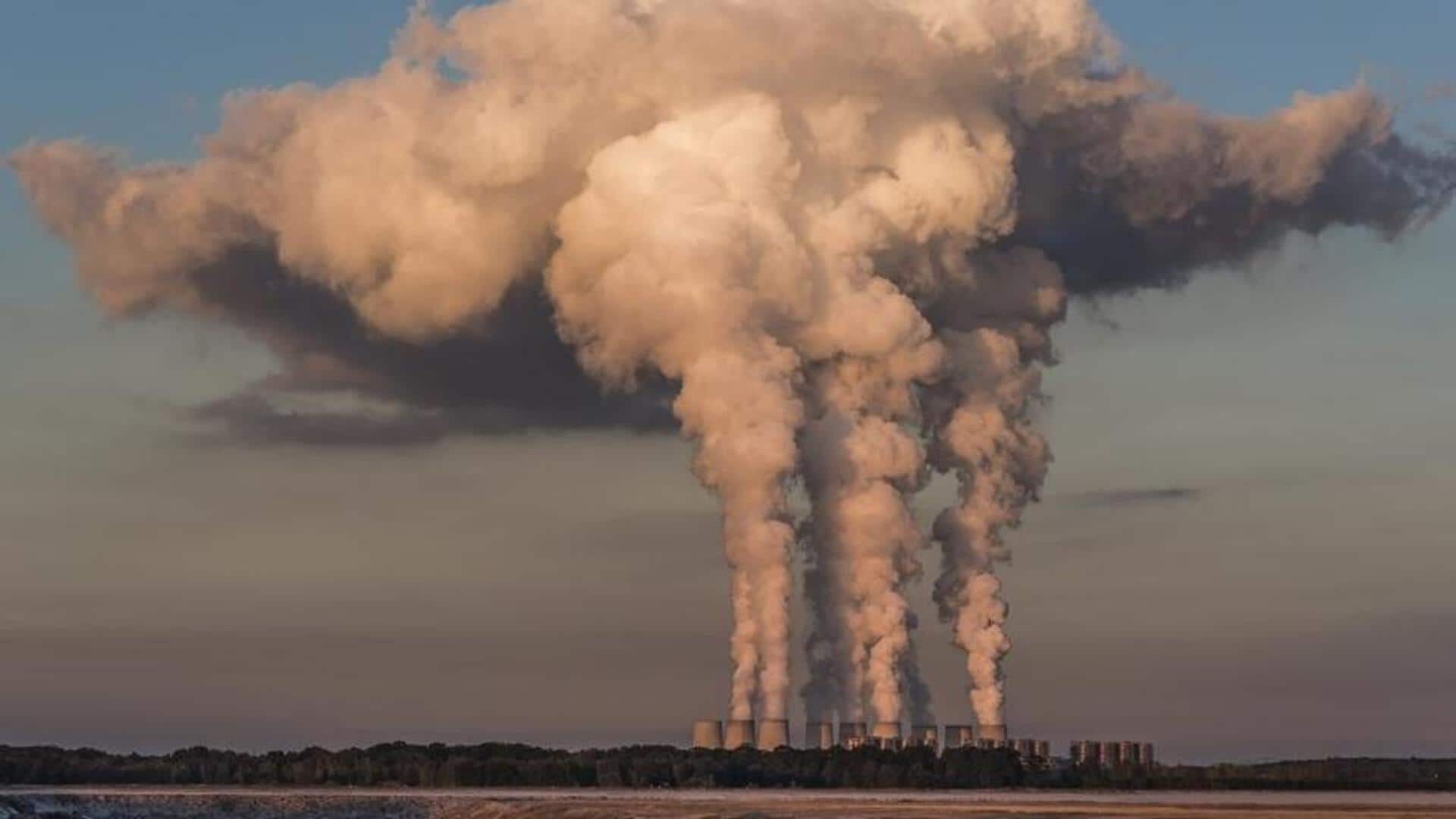Greenhouse gas levels surge, hit new record in 2023: WMO
What's the story
The World Meteorological Organization (WMO) has said that 2023 was the warmest year on record on Earth, along with a record rise in greenhouse gas concentrations.
According to WMO's annual bulletin, carbon dioxide (CO2) levels have increased by 11.4% in the last two decades, reaching concentrations not seen in millions of years.
The globally-averaged surface concentration of CO2 reached a new high of 420 parts per million (ppm) last year.
Rising concentrations
Methane and nitrous oxide levels also reach record highs
Along with CO2, methane and nitrous oxide levels also skyrocketed in 2023, hitting 1,934 parts per billion and 336.9 parts per billion respectively.
These numbers mark an increase of 151%, 265%, and 125% from pre-industrial levels for CO2, methane, and nitrous oxide respectively.
The WMO emphasized that these increases are based on long-term observations from the Global Atmosphere Watch network.
Climate impact
CO2's significant role in global warming
The WMO report highlighted that CO2 is the most important greenhouse gas, accounting for around 64% of the warming effect on our climate.
The increase in CO2 levels in 2023 was partially due to forest fires and the El Nino weather phenomenon, which made conditions drier and vegetation absorbed less carbon.
Methane and nitrous oxide also contribute to global warming, accounting for around 16% and 6% of the warming effect of long-lived greenhouse gasses respectively.
Urgent action
WMO Secretary-General's warning on climate change
WMO Secretary-General Celeste Saulo was alarmed by the increasing greenhouse gas levels.
She said, "Another year. Another record. This should set alarm bells ringing among decision makers."
She cautioned that we are off track to meet the Paris Agreement goals of limiting global warming to well below 2°C and aiming for 1.5°C above pre-industrial levels.
Emission shortfall
UNFCCC report indicates insufficient global emissions reduction
The United Nations Framework Convention on Climate Change (UNFCCC) also released its NDC Synthesis report, noting that current national contributions would only reduce global emissions by 2.6% by 2030 (compared to 2019 levels).
This is far from the 43% reduction by 2030 required to avert severe climate impacts.
UNFCCC's executive secretary Simon Stiell urged countries to present bolder national climate plans next year, saying, "Today's NDC Synthesis Report must be a turning point."
